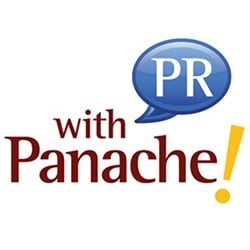When our 2nd-graders take their weekly spelling test, are they succeeding by mastering letter groups and sounds, or just by memorizing until the test is over? The endless cycle of handing out a list of words to our students on Monday, having them memorize the spelling by Friday to ace the test, and finding they’ve forgotten the spelling by the time the weekend is over, isn’t a successful way of learning to spell.
Research by the National Reading Panel shows that a solid foundation in phonemic awareness and phonics instruction is critical to success in reading and spelling. Just teaching phonics is not enough; you have to teach it explicitly, systematically, and sequentially. We’ve seen students struggle with spelling and reading if they don’t have a solid foundation in phonemic awareness and phonics. Since we’ve switched our focus to teaching our students skills, not memorization, the results have been nothing short of thrilling.
Redefining the Spelling Test
Rather than limiting students to memorizing 20 new words each week, we approach spelling by teaching phonics skills that are based on the 42 sounds, five phonetic skills, and two decoding skills. These combinations appear in words that our students learn throughout elementary school. We use the Reading Horizons spelling supplement to teach students phonics-based spelling, which allows them to spell words far outside their range.
For example, we can teach S Blends sc, sk, sl, sm, sn, sp, st, and sw. After they study each blend and their associated sounds in words, our students are able to spell a word like “spot” because we are working with those individual letters and sounds. If “stop” shows up on their spelling test instead, they can accurately apply the skill they’ve learned to words with similar sounds and blends using their 42 sounds, five phonetic skills, and two decoding skills.
Improving Reading and Writing
Using this method, students can spell words they’ve never seen in print. They hear the word, apply the proper letter sounds, and segment it out until they’ve got it. It increases their confidence not only in their spelling, but in their writing. Their writing has reached a higher level because they aren’t limited to the simple words that they absolutely know how to spell.
We see students have the confidence to try and succeed at spelling multisyllabic words because they’re able to attach the sound to the proper word segment. Building their skill in correctly generating letter patterns that correspond with speech sounds allows them to retain the spelling of words. They know to sound out and segment words and apply the spelling patterns associated with those sounds.
Once we started to transform our spelling curriculum to what it is today, we had to be explicit with parents. They were trained to have their child memorize the spelling list as well. Parents have even come into teacher conferences asking if their child should be in gifted classes because they were able to spell multisyllabic words they’d never practiced before. We had to explain that our spelling instruction enables our students to branch out of their comfort zone. We’ve also had non-English speaking students come in, learn to segment sounds, and spell and learn new words. Their vocabulary skills also grow immensely through our spelling instruction.
Mastery of these skills take reading to a higher level. In reading, students are decoding the words and in spelling they are encoding the words. We know our students have reached mastery when they can encode efficiently.
Robyn Kendrick and Kyla Cook are 2nd-grade teachers at Stanton County Elementary School in Johnson, Kansas.



